New ruling on Magnitsky case forces banks to choose between Swiss judiciary and US sanctions
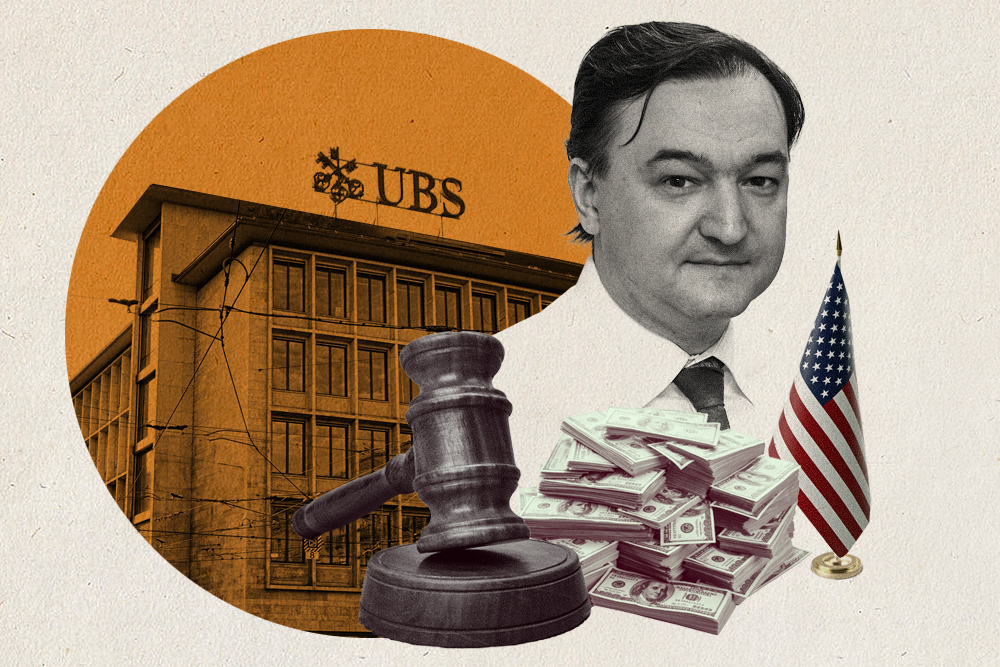
The latest Swiss ruling in the Magnitsky case could force banks to breach international law. Experts say Swiss banks may face sanctions in the US if they play by Swiss rules.
On January 21 Switzerland’s Federal Court, the highest court in the country, deniedExternal link the appeal of Hermitage Capital Managment, a Russian investment fund.
Hermitage was appealing a Federal Criminal Court verdictExternal link of 2022 that claimed that the asset manager was not a victim of what is known as the Magnitsky Affair, named after a Russian lawyer, who died in prison in 2009 under suspicious circumstances while investigating a vast fraud case against the Russian Treasury.
The ruling also states Swiss banks including UBS and Credit Suisse can now return the equivalent of CHF14 million (out of CHF18 million frozen) to three Russian citizens linked to a massive tax fraud.
The fraud included some $230 million uncovered by lawyer Sergei Magnitsky when he represented Hermitage Capital Management. Through a complex laundering scheme, the money was hidden in several countries including Switzerland.
The ruling raises several questions including whether it places the Swiss banks in violation of international law. The three Russian individuals are sanctioned under the Magnitsky Act, a US law intending to punish Russian officials involved in the affair, in multiple jurisdictions, including the United States, the United Kingdom, Canada, and Australia. This means that the Swiss banks have to carefully weigh the risks of potentially violating US sanctions. It remains unclear at this point whether the banks will unfreeze the funds after the Swiss Federal Court ruling.
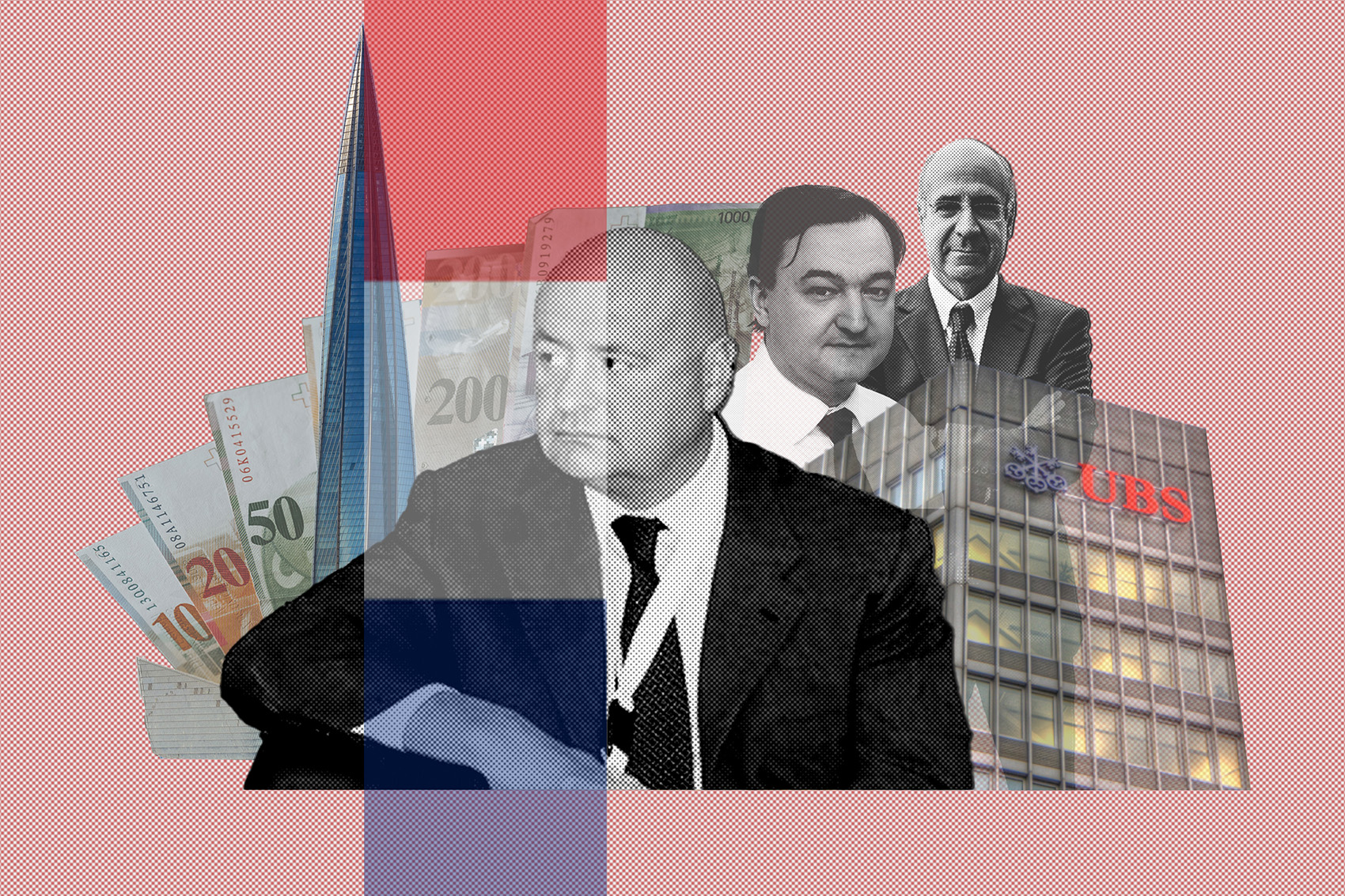
More
Magnitsky case: How Switzerland failed to investigate Russian millions
The ruling also confirms that Hermitage has exhausted its legal options to appeal in Switzerland. The decision to return the frozen funds held in Swiss bank accounts to Russians facing sanctions “breaches international sanctions in relation to Russia and the Magnitsky case and is in serious violation of Switzerland’s obligations under the UN Convention against Transnational Organized CrimeExternal link and the UN Convention against CorruptionExternal link,” Hermitage Capital Management said in a press-release on January 31.
When questioned about whether Swiss banks would be in breach of international law if they return the funds, the Swiss Bankers Association (SBA) gave a vague answer.
“Banks in Switzerland strictly comply with all applicable laws and regulations, including sanctions imposed by Swiss, international, and supranational authorities.”
A decade of legal procedures
This latest twist in the Swiss chapter of the Magnitsky case continues to place Switzerland at odds with rulings in the countries where funds were hidden including the US and the UK. In these countries Hermitage Capital was named as a victim of the Russian fraud scheme. Funds linked to the fraud were permanently confiscated or paid out as a settlement with authorities.
In 2011, the Swiss Attorney General’s Office launched a money laundering probe, with Hermitage participating as a civil party.
The case was officially closedExternal link in 2021 when the Swiss Attorney General’s Office (OAG) ruled that there was insufficient evidence to press charges against anyone in Switzerland.
During that investigation, the OAG froze CHF18 million ($20 million) in accounts linked to three Russian citizens with Swiss banks UBS and Credit Suisse (now a subsidiary of UBS).
Dmitry Klyuev: He has been identified as the architect of the $230 million fraud. He is sanctioned by the US, Canada, UK, and Australia.
Vladlen Stepanov & Olga Stepanova: The couple is sanctioned by the US, Canada, UK, and Australia.
Denis Katsyv was investigated for money laundering in the US, the Netherlands, and Israel. He later settled his case with US. authorities for $6 millionExternal link in 2017 and with the Dutch authorities in 2024 for External link€3 million.
Swiss authorities claimed they could only link CHF4 million of the frozen CHF18 million to the Magnitsky case, confiscating that amount while returning CHF14 million to the Russian nationals.
The techniques to embezzle funds used in the Magnitsky case were described in depth by journalists at Novaya Gazeta, a Russian media outlet, and at the OCCRP, an international consortium of journalists. Russian police officers confiscated documents and the corporate seals of the Russian subsidiaries of the Hermitage Fund, a British investment company, and then used them to re-register ownership under another name.
Subsequently, a series of other dummy shell companies, established by the same individuals, presented fictitious financial claims against the stolen “subsidiaries” of Hermitage Fund. Playing the role of both plaintiff and defendant, they convinced Russian arbitration courts to issue rulings that resulted in massive losses on paper, completely nullifying the original income. Then, armed with documents “proving” that the company had not made any profit, the perpetrators filed an official claim for a reimbursement in the amount of $230 million, which had previously been paid to the Russian Treasury in the form of income tax. The money obtained in this way was then transferred out of the country through a web of offshore accounts.
Hermitage appealed against the OAG order to the Federal Criminal Court in Bellinzona. The appeal was rejectedExternal link and in 2022 Hermitage appealed to the Federal Court.
The top court statedExternal link that it did not find any indication that Hermitage Capital Management “suffered any direct harm from the alleged offences”.
Swiss Banks in breach of international Magnitsky sanctions?
Following the ruling, Hermitage’s founder, Bill Browder, said he intends “to advocate for sanctions and accountability for Swiss individuals involved in abetting Russians in high-profile case and returning money to them at the time of Russia’s full invasion in Ukraine”.
In an interview with SWI swissinfo.ch, Browder said that he would be working with the Helsinki Commission (an independent US government agency tasked with promoting human rights, military security and economic cooperation in 57 countries) to impose Magnitsky sanctions “on Swiss officials who had willingly overlooked corruption within Swiss law enforcement, which had ultimately led to the return of funds to sanctioned Russian individuals”.
These officials include former Swiss Attorney General Michael Lauber who oversaw most of the Magnitsky case as well as his close collaborators at the time and his successor.
What are key legal risks?
Swiss banks UBS and Credit Suisse (now part of UBS) find themselves in the delicate position of either applying the Swiss ruling thereby risking US sanctions or disregarding it and running afoul of the Swiss judicial system.
Following the ruling, the investment fund addressed a letter to UBS management listing potential legal risk for banks releasing funds to “sanctioned individuals”.
Despite the Swiss Federal Court’s ruling, financial institutions remain bound by US, UK, EU, and other international regulatory frameworks, and facilitating transactions for sanctioned individuals could lead to serious penalties, Hermitage’s letter to UBS managements says.
In case of violations of US Sanctions law, the US Department of the Treasury can impose severe financial penalties under the International Emergency Economic Powers ActExternal link for transactions benefiting sanctioned individuals. Civil and criminal liability, including treble (triple) damages, could arise under other US laws. These included the Racketeer Influenced and Corrupt Organizations Act (RICO)External link and the Anti-Terrorism Act (ATA). In 2014, BNP Paribas was fined $8.9 billion by the USExternal link for processing transactions involving sanctioned entities and in 2012 HSBC was fined $1.9 billionExternal link for money laundering and sanctions violations.
When contacted by SWI swissinfo.ch, UBS, which also operates in the US, did not specify what it would do with the funds it has frozen.
“As a global financial institution, UBS complies with applicable legal and regulatory requirements and sanctions across multiple jurisdictions, including those by the United Nations, Switzerland, the EU, the UK and the US,” the bank replied.
Political or legal issue?
The State Secretariat for Economic Affairs (SECO), which is responsible for enforcing and monitoring sanctions, confirmed Switzerland was following the European Union’s sanctions on Russia and Russian individuals and not US sanctions.
According to SECO, the individuals holding funds in Switzerland in connection with the Hermitage/Browder case are not on the EU sanctions list, which means that their assets do not have to be frozen either in the EU or in Switzerland under existing sanctions regimes.
“Sanctions imposed by third countries, such as the US, have in principle no legal effect in Switzerland,” SECO added in its email responses.
At the same time, SECO said banks often take foreign sanctions into account to mitigate their risk exposure. Several experts contacted by SWI say Swiss banks are likely to face sanctions by the US if they comply with the Swiss court ruling.
“UBS will probably refuse [to release funds] because, if given a choice, the US sanctions pose a far greater risk to them than any potential legal challenge from the Russians attempting to retrieve their funds. UBS can simply argue that they cannot proceed with the transaction,” says Mark Pieth, the former head of section of economic and organised crime at the Swiss ministry of justice and police. He is a prominent anticorruption expert and now leads an international law firm specialised in white-collar crime and Swiss criminal law.
According to Pieth, UBS might not risk losing its political support in the US and sees both political and legal issues in the case. “Banks have likely contributed to various political campaigns, including [the US president Donald] Trump’s, to ensure they remain on the right side of power,” he says. “Both Republicans and Democrats appear willing to pressure Swiss banks on this matter, making it a serious threat for UBS. Given this, UBS will likely refrain from taking any action.”
Last year, a SWI investigation revealed that Switzerland had also failed to investigate another CHF10 million of allegedly illicit money from a global Russian tax fraud case.
Edited Virginie Mangin/ac

More
Our weekly newsletter on foreign affairs

In compliance with the JTI standards
More: SWI swissinfo.ch certified by the Journalism Trust Initiative









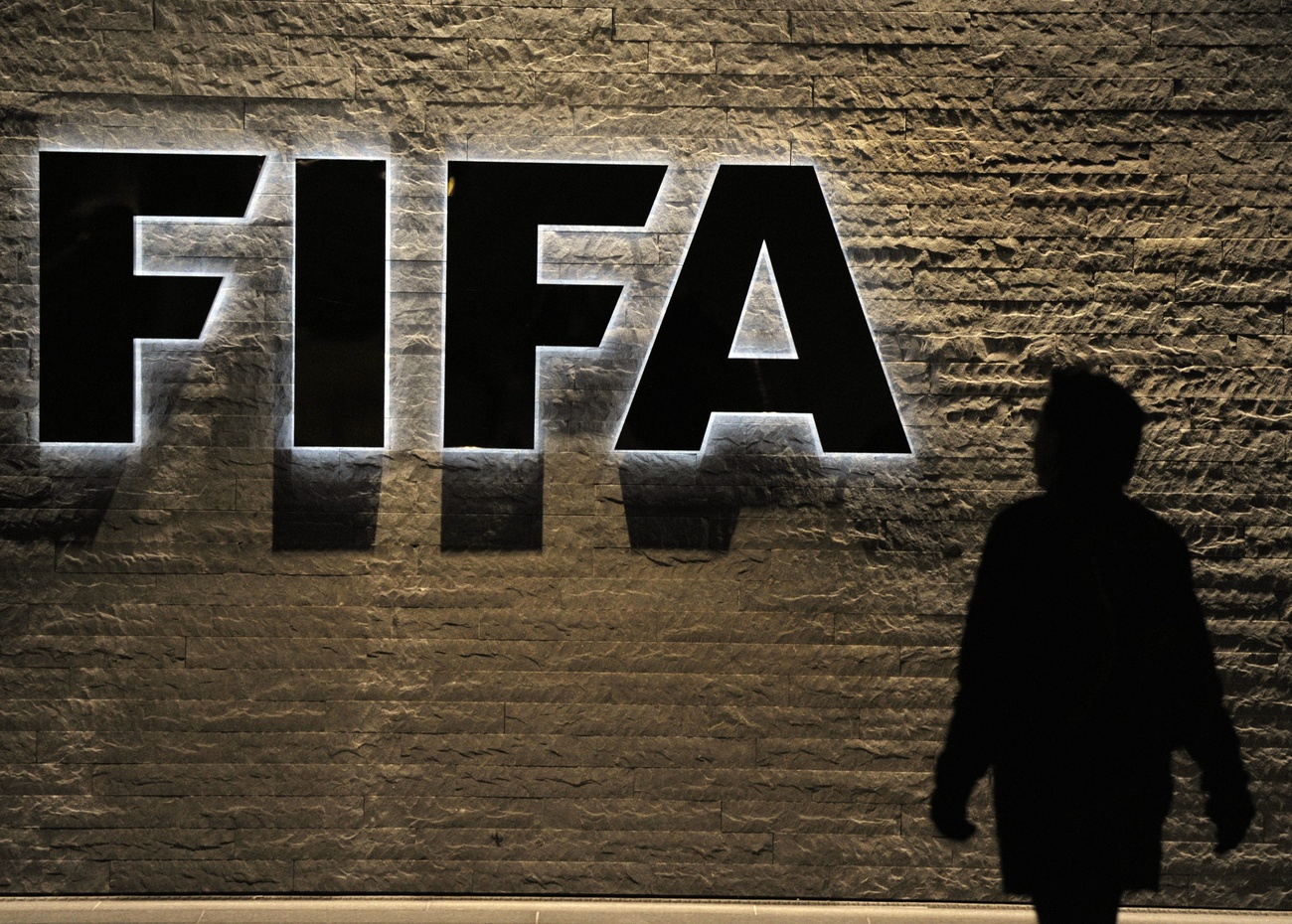
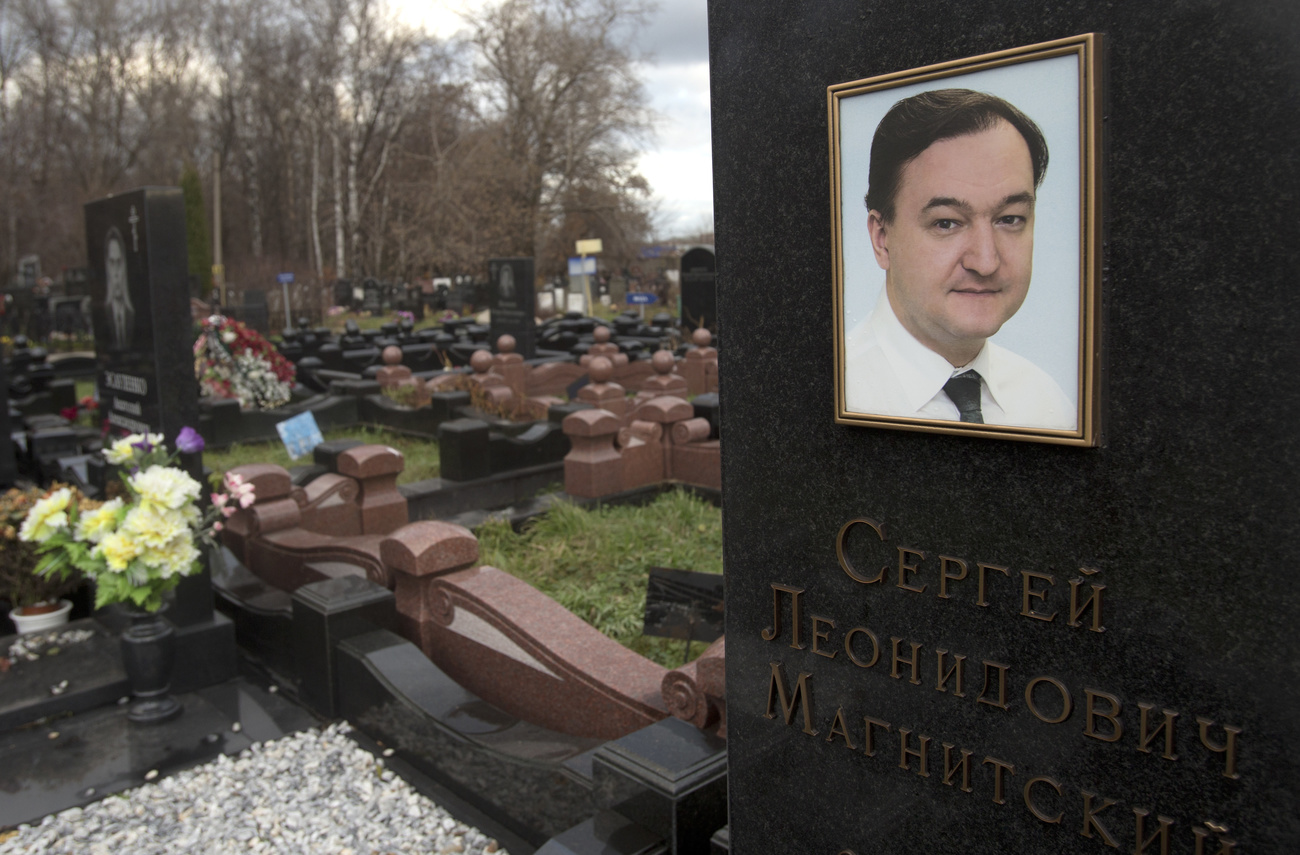

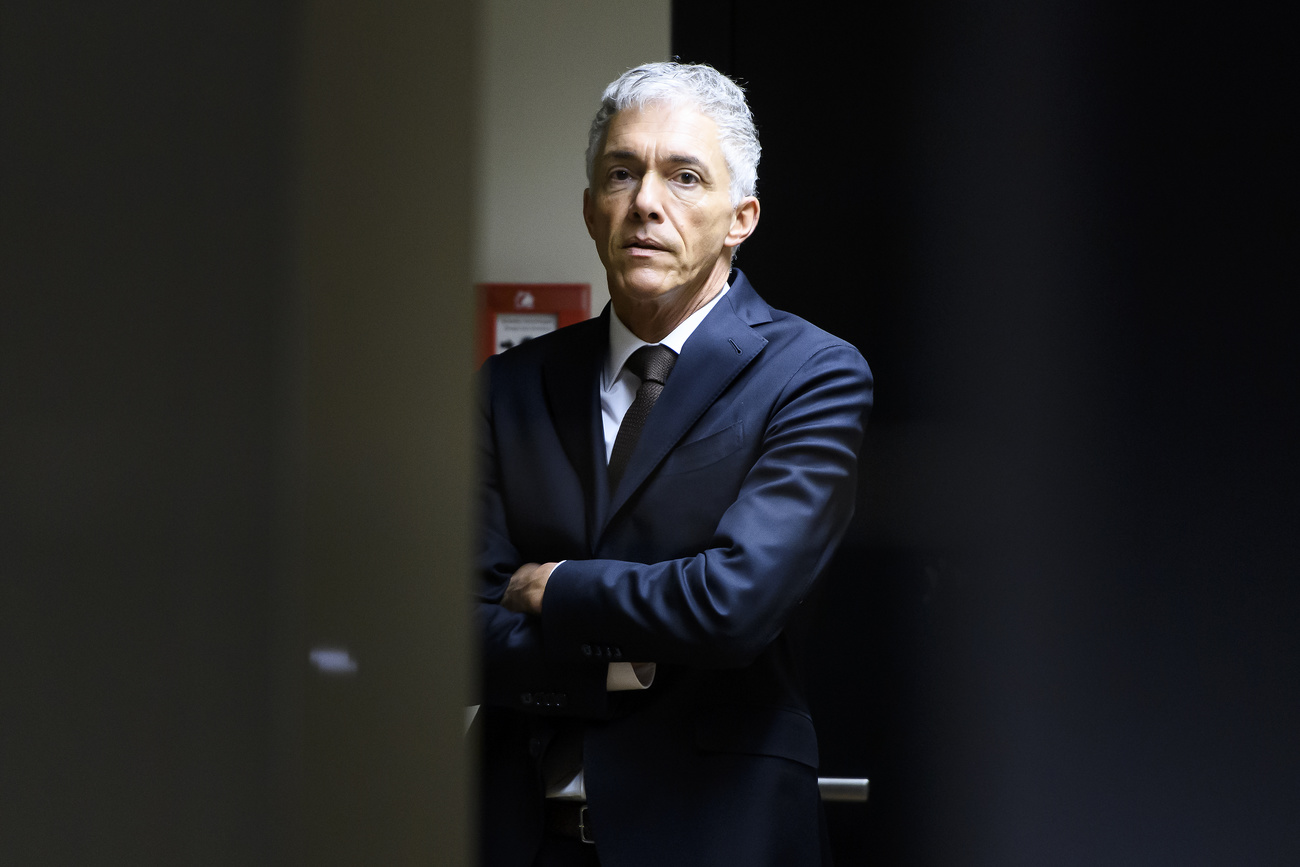
You can find an overview of ongoing debates with our journalists here . Please join us!
If you want to start a conversation about a topic raised in this article or want to report factual errors, email us at english@swissinfo.ch.